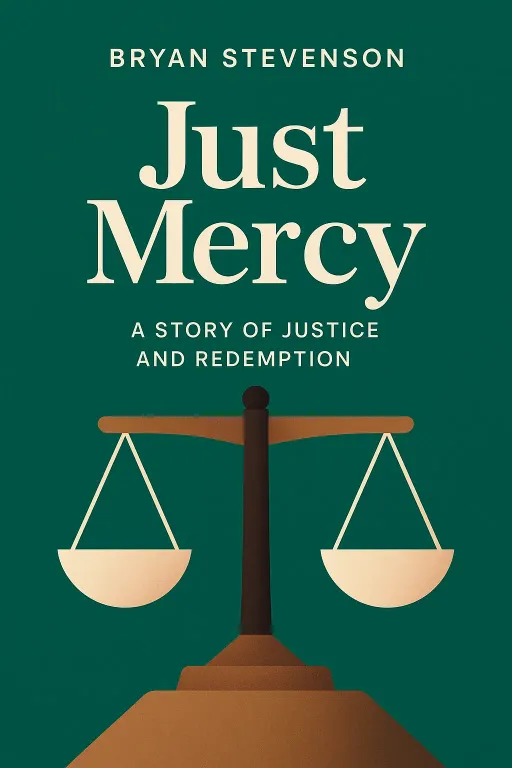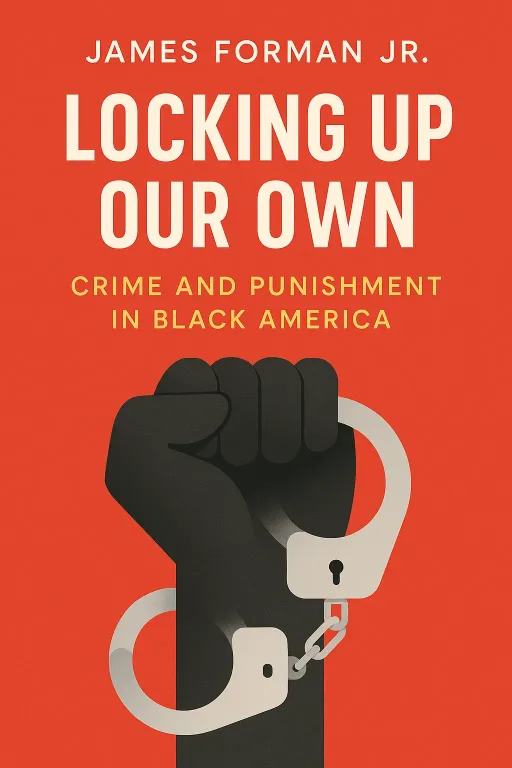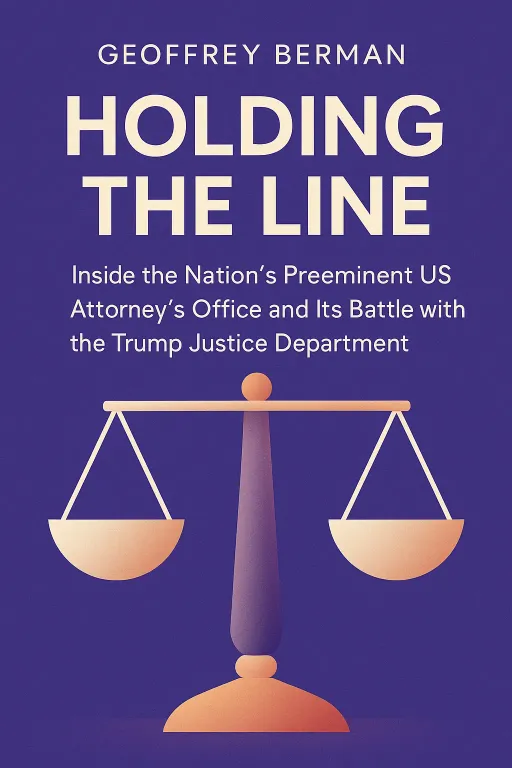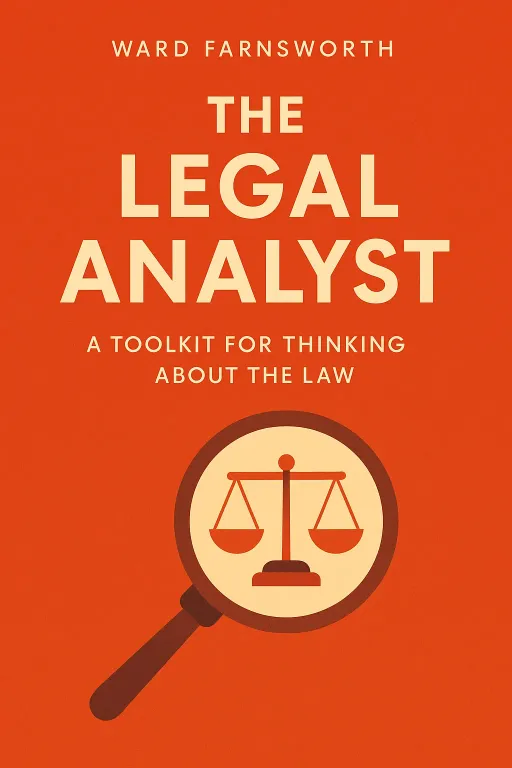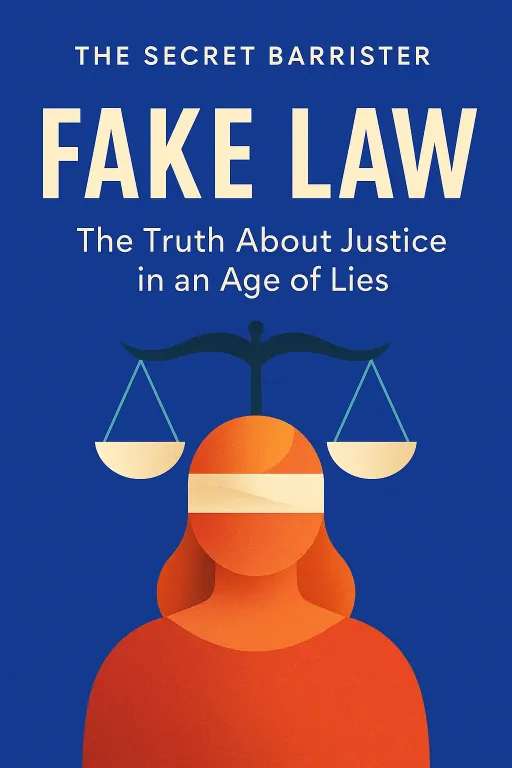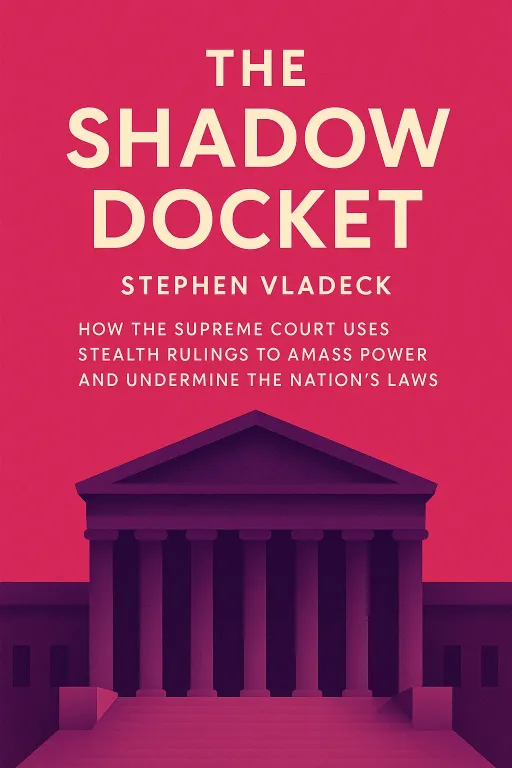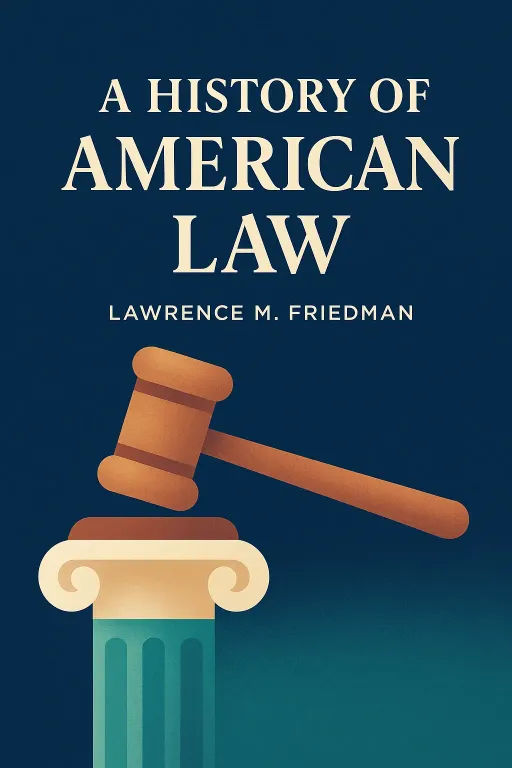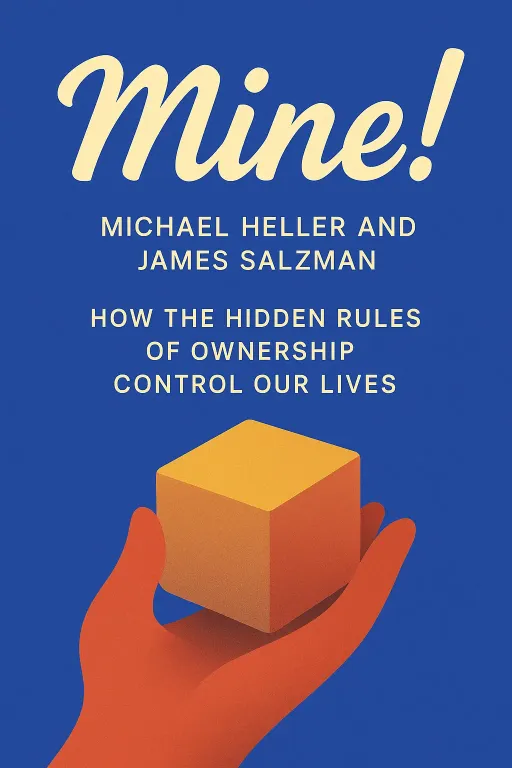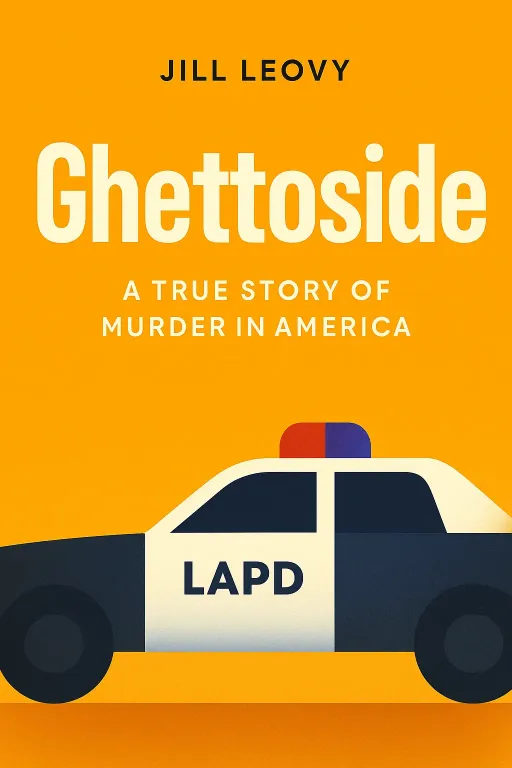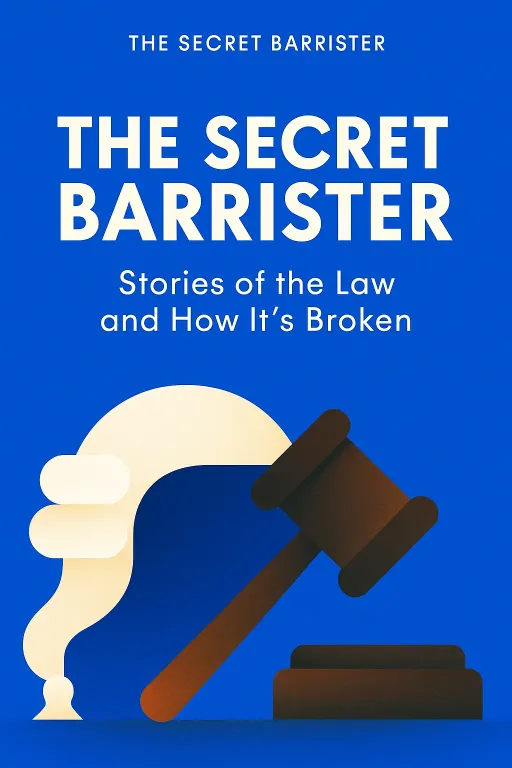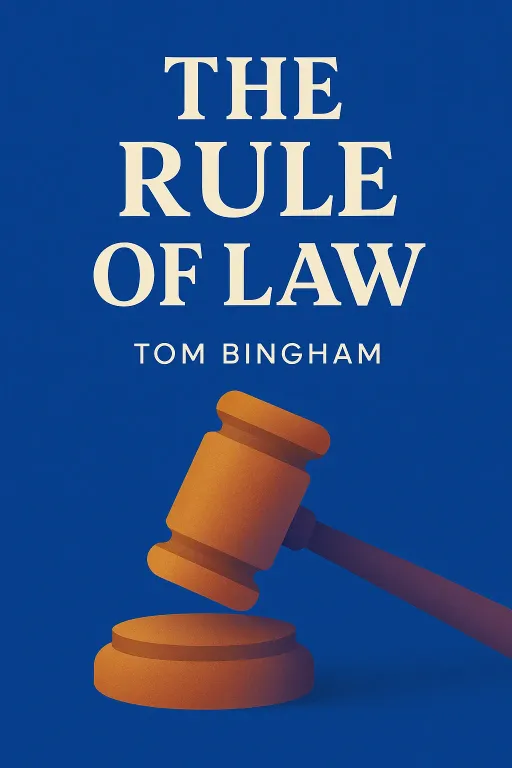
The Rule of Law
12 minIntroduction
Narrator: What if a government, in a moment of national crisis, decided that an entire group of its own citizens was a threat? Not because of anything they had done, but simply because of their ancestry. This is not a hypothetical scenario. Following the attack on Pearl Harbor in 1941, the United States government, fueled by fear and prejudice, authorized the forced removal and incarceration of over 120,000 Japanese Americans. Families were uprooted, their property lost, and their liberty stripped away, all without a trial or any evidence of wrongdoing. This historical injustice serves as a stark reminder of how quickly the principles of a free society can be abandoned. It raises a fundamental question: what is the invisible shield that protects citizens from the arbitrary power of the state, and how can it be so easily broken?
The answer, and a powerful defense of that shield, is found in Tom Bingham's seminal work, The Rule of Law. A former Lord Chief Justice of England and Wales, Bingham provides a clear and compelling exploration of this foundational concept, arguing that it is not a dry legal abstraction but the very bedrock of a fair and just society.
The Rule of Law Is More Than Just Rules
Key Insight 1
Narrator: At its core, the rule of law is the principle that everyone, from the most powerful government official to the ordinary citizen, is subject to and protected by the law. While the term was popularized by the legal scholar A.V. Dicey in 1885, the idea is ancient, tracing back to Aristotle’s assertion that “It is better for the law to rule than one of the citizens.” Bingham defines it as a system where all persons and authorities are bound by laws that are publicly made, applied to the future, and administered in the courts.
However, defining this principle in practice can be incredibly difficult. The book highlights the case of the UK's Serious Fraud Office (SFO) and its investigation into the arms company BAE Systems for alleged corrupt payments to Saudi Arabian officials. The SFO director decided to halt the investigation, a decision that was challenged in court as being contrary to the rule of law. One court agreed, but the highest court, the House of Lords, ultimately ruled that the director’s decision was lawful. This case demonstrates that the rule of law is not a simple checklist; it is a dynamic principle that is constantly tested and debated in the most complex real-world situations, forcing a society to confront the boundaries between national interest, political pressure, and legal principle.
The Law Must Be Accessible, Not a Secret Code
Key Insight 2
Narrator: For the rule of law to function, the law itself must be accessible, intelligible, clear, and predictable. If people cannot know what the law requires, they cannot be expected to follow it. Bingham argues that modern governments often undermine this principle through what he calls "legislative hyperactivity."
A startling case from 2007 perfectly illustrates this breakdown. A man was convicted of tobacco smuggling and faced a confiscation order for over £66,000 in unpaid duties. The prosecution, the defense, and the trial judge all based their arguments on a set of 1992 regulations. The case went to the Court of Appeal, where three senior judges also reviewed the 1992 regulations and prepared to uphold the decision. But on the very eve of delivering their judgment, they made a shocking discovery: the 1992 regulations had been superseded by different ones in 2001, which no longer applied to tobacco. No one involved in the case—from the lawyers to the senior judges—was aware of the correct law. This incident reveals a system so complex and poorly indexed that even its most senior practitioners can get it wrong, making a mockery of the idea that ignorance of the law is no excuse.
Decisions Must Be Based on Law, Not Discretion
Key Insight 3
Narrator: A central pillar of the rule of law is that questions of legal right and liability should be decided by the application of law, not by the exercise of discretion. Unchecked discretion can lead to arbitrary and unpredictable decisions, which is the very definition of tyranny.
Bingham presents a simple but powerful hypothetical story to explain this. Imagine a Mrs. Smith applies for a disability grant from a local officer. Her application is refused without explanation. When she presses, the officer gives vague reasons but refuses to state the criteria he is using. He tells her that the decision is his alone and cannot be challenged in court. Meanwhile, her sister, in a nearby town with an identical condition, was approved for the same grant by a different officer. Mrs. Smith is left with no recourse and no way to understand why she was denied. This scenario, Bingham shows, is a flagrant violation of the rule of law. For a system to be just, decisions must be based on known criteria, and citizens must have a way to challenge them, ensuring that power is not exercised on a whim.
All Are Equal Before the Law, But This Is a Fragile Principle
Key Insight 4
Narrator: The law should apply equally to all, with any differentiation justified only by objective differences. This principle of equality is a cornerstone of justice. Historically, this ideal has been violated countless times, from the institution of slavery to discrimination based on gender or religion.
The case of James Somerset in 1772 stands as a landmark victory for this principle. Somerset, a slave brought to England, challenged his owner's right to forcibly send him to Jamaica to be sold. The Lord Chief Justice, Lord Mansfield, ruled that the state of slavery was so "odious" that it could not be supported by English common law, and Somerset was freed. Yet, Bingham warns that this principle is constantly under threat. He points to the UK’s Anti-Terrorism, Crime and Security Act of 2001, passed after 9/11, which allowed for the indefinite detention of foreign nationals without trial but not British citizens. This created two tiers of justice based on nationality. The government’s rationale was that it was politically more difficult to impose such "draconian powers" on its own citizens, a chilling admission that revealed how easily the principle of equality can be set aside in the name of security.
Power Must Be Exercised in Good Faith and for Its Intended Purpose
Key Insight 5
Narrator: Ministers and public officials are granted powers to serve the public, not to advance their own interests. The rule of law demands that these powers be exercised in good faith, fairly, and only for the purpose for which they were conferred.
A stunning example of this principle being violated comes from Westminster City Council in the late 1980s. The Conservative-led council used its statutory power to sell council properties. However, their motive was not good governance but political gain. They deliberately sold properties in marginal electoral wards with the specific aim of replacing council tenants, who they believed were more likely to vote for the opposition Labour party, with owner-occupiers, who they assumed would vote Conservative. This scheme was a clear abuse of power, using a tool meant for public housing management to manipulate the democratic process. The leading members were later found to have engaged in willful misconduct and ordered to pay millions in compensation, a powerful judgment that public power is a trust, not a political weapon.
The Rule of Law Demands Protection of Human Rights
Key Insight 6
Narrator: Some argue for a "thin" definition of the rule of law, where a state is compliant as long as it follows its own procedures, even if its laws are oppressive. Bingham forcefully rejects this, arguing for a "thick" definition where the protection of fundamental human rights is an essential component. A state that, for example, legally enforces racial segregation or denies fair trials is not upholding the rule of law, no matter how correctly its procedures are followed.
The tragic case of a young Asian detainee at Feltham Young Offenders’ Institution illustrates the state’s positive obligation to protect rights. In 2000, he was placed in a cell with a known, rabidly racist inmate and was subsequently battered to death. His family sought a public inquiry. Before the UK’s Human Rights Act, this would have been unlikely. However, because the Act enshrines the right to life, the House of Lords ordered a full public inquiry, holding the state accountable for its failure to protect him. This shows that the rule of law is not just about what the state cannot do to you; it is also about what it must do to protect your fundamental rights.
The Rule of Law Must Extend to the International Stage
Key Insight 7
Narrator: The principles of the rule of law are just as critical in the international sphere as they are domestically. States must be bound by their obligations under international law to ensure global peace and cooperation. The most serious test of this principle in recent times was the 2003 invasion of Iraq. The United Nations Charter strictly prohibits the use of force except in self-defense or when authorized by the UN Security Council.
The US-led coalition invaded Iraq without a clear, new resolution from the Security Council authorizing force. Instead, they relied on a controversial interpretation of past resolutions. The British Attorney General, Lord Goldsmith, initially had grave doubts about the legality of the war without a new resolution but later changed his advice, clearing the way for the UK’s participation. This decision to act without clear international legal consensus was seen by many, including the then-UN Secretary-General Kofi Annan, as a violation of the UN Charter. The Iraq invasion stands as a profound example of how the international rule of law can be strained and potentially broken when powerful nations decide that their geopolitical goals outweigh their legal obligations.
Conclusion
Narrator: The single most important takeaway from The Rule of Law is that this principle is not a technical legal doctrine for lawyers but the essential, and often fragile, foundation of a civilized society. It is the difference between a government bound by law and a government that rules by arbitrary power. It is what protects citizens from the state, ensures fairness between individuals, and provides the predictability needed for a society to flourish.
Tom Bingham’s work is a powerful call to vigilance. The rule of law is not a destination we have reached, but a standard we must constantly strive to uphold. It forces us to ask difficult questions: In our own society, where is the line between security and liberty? Are our laws truly accessible to everyone? And are we willing to hold our leaders accountable, both at home and abroad, to the same laws that bind us all? The health of our democracy depends on our answers.
